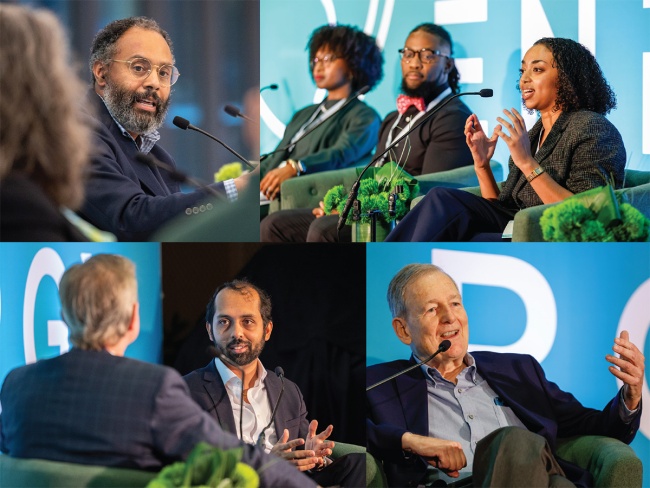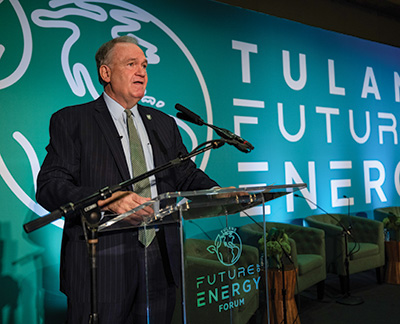Energy pragmatism was a key part of the conversation around energy transition, balancing newer energy solutions with traditional forms of energy like oil and gas.
“Louisiana is just one of the best places to do business, for traditional energy and for the energy transition,” said Stephen Swiber (SLA ’15, B ’16), Chief Resilience Officer in the Office of the Louisiana Governor and a Tulane alumnus.
During a Thursday session, Hon. Mark Menezes, president and CEO of the United States Energy Association and former deputy secretary of the U.S. Department of Energy, and Hon. Dan Brouillette (B ’24), president and CEO of Edison Electric Institute and former secretary of the U.S. Department of Energy, spoke on the importance of Louisiana’s oil production industry as well as its place in the energy transition.
“Energy transitions are nothing new,” said Brouillette, pointing out that our current energy transition is the most recent in a long line from wood to coal to steam and onward.
Hydrogen also factored into the transition conversation and was the main theme of a session featuring Hon. John Bel Edwards, former governor of Louisiana. “Louisiana is ideally suited and situated for these hydrogen efforts,” he said.
The crux of these pragmatic solutions will require all hands on deck, not just among people in different sectors but also leaning on AI technology to aid the human-led effort, panelists noted. Speakers discussed both the potential benefits of using AI to increase efficiency of energy systems and the challenges of providing energy for the massive data centers that AI needs to operate.
At a panel on the role of AI and analytics in the future of energy, Hridesh Rajan, dean of the School of Science and Engineering, said that he was an “AI for energy and energy for AI guy,” emphasizing that the future role of AI in energy goes both ways.
The answers to the questions about AI and energy will not come from a single place, however, according to Rajan. “Students, industry and faculty working together — that’s where the magic will happen,” he said.
That statement was indicative of one of the other consistent themes of the forum: the importance of students and how they can be supported to do the most for the future of energy.
“There’s the pedagogy, the curriculum, all of the important things, but it’s also really important to make sure students are exposed to events like this,” said Rodney Sampson (TC ’95), chairman and CEO of Opportunity Hub and a Tulane alumnus.


































































